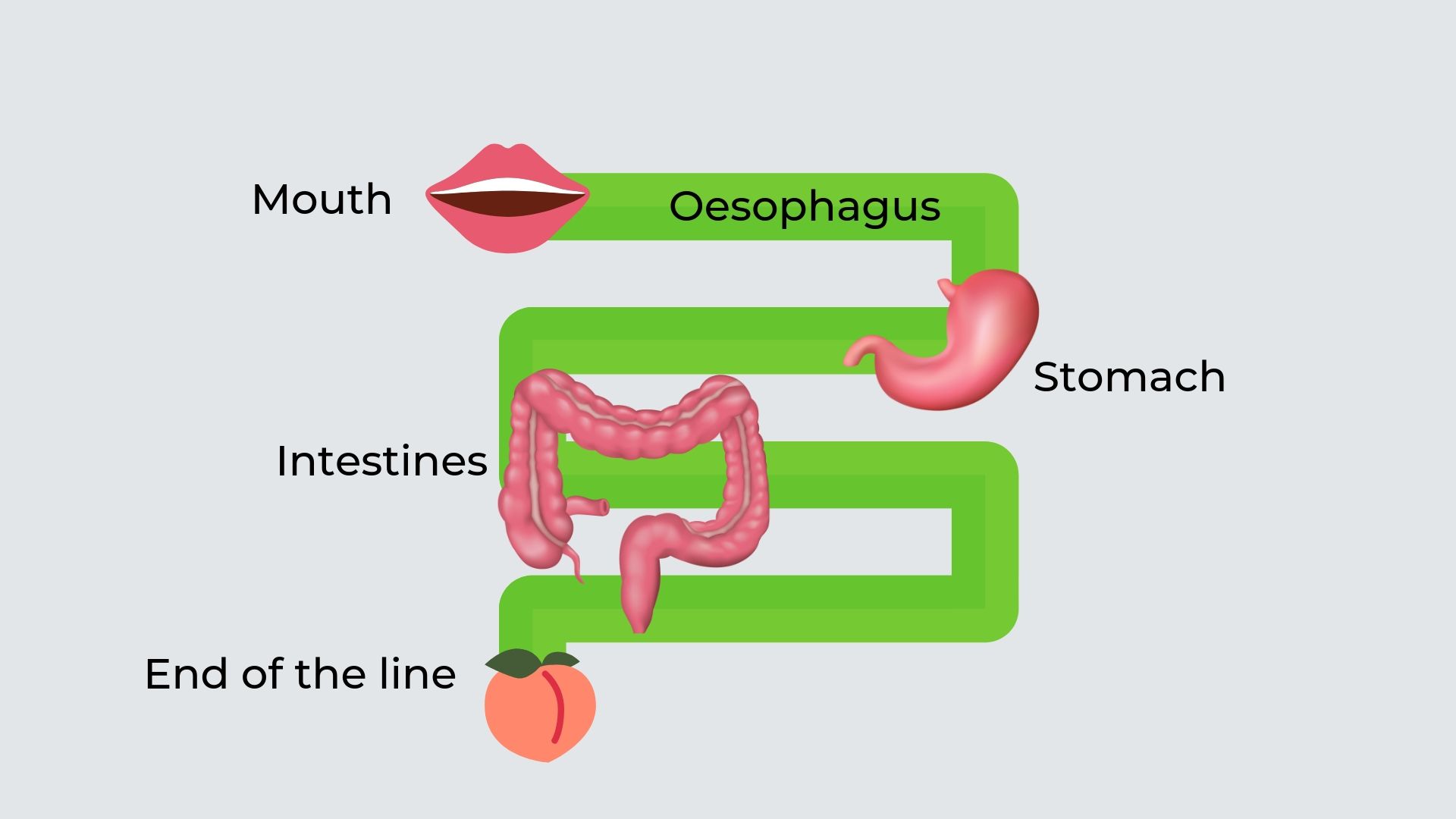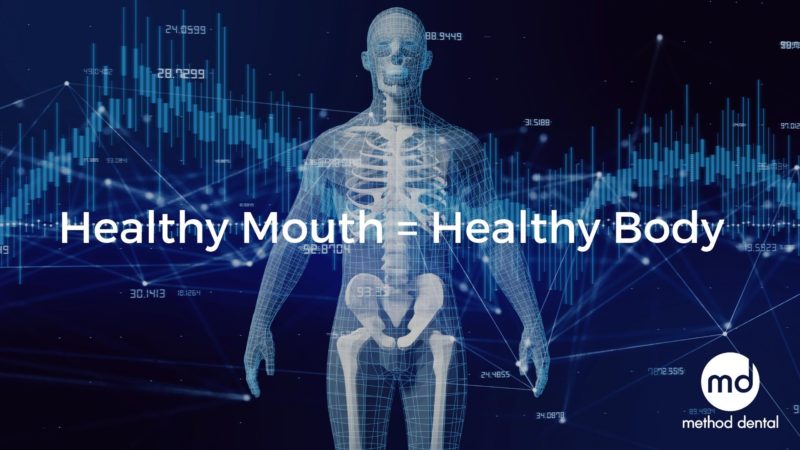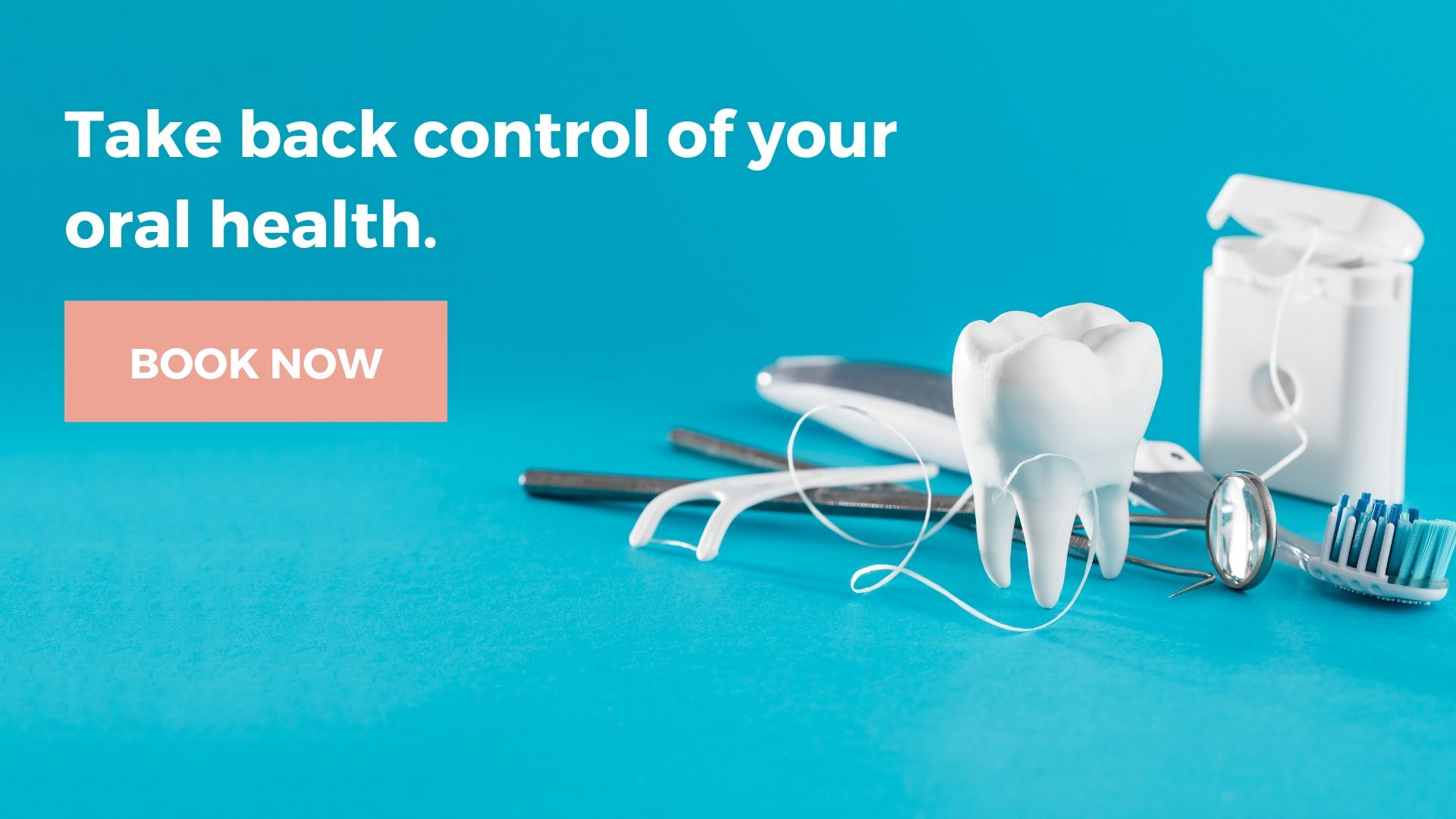Oral health and your general health
They say that “the eyes are the windows to your soul.” They also say “your mouth is a gateway to your overall health.” Well, technically, it’s not really a saying but it definitely should be. Here’s why.
What goes on in your mouth doesn’t just stay in your mouth. Your “gut” is like an open ended pipe. Foods and drinks travel down a mysterious path through your throat, stomach, intestines and ends the journey at the rear end. It’s all connected together.
So it probably doesn’t come as much of a surprise that the health of your mouth is bound to affect the rest of your body. But it may surprise you how much your oral health can affect your general health!

Your mouth
Sorry to be blunt, but your mouth is a cesspool of bacteria. And we’re not picking on you! Everyone’s mouth contains billions upon billions of germs!
Thankfully, most of them are harmless. But of course, there are a few bad apples that wreak havoc, causing tooth decay and gum disease.
How is your mouth health connected to your general health?
We call this link the “Oral Systemic Link” or “Oral Systemic Connection.”
Your gum health can affect your heart health, brain health, gut health, diabetes and even affects your ability to carry a baby to full term! As recently as January 2019, a link was established between gum disease and Alzheimer’s Disease!
Missing and decayed teeth can also affect your health through poor nutrition, lower self-esteem and missing teeth has also been linked to the development of Dementia.
Your gum health explained
Recently, we went deep on gingivitis and periodontitis – the two most common forms of gum disease. You can read more about gingivitis here, and periodontitis here. But we’ve got the short version here for you too.
When germs attach themselves to your teeth, they can get stuck next to and under your gums. And if germs get themselves stuck in your body where they aren’t wanted, that can lead to infection.
So your immune system kicks in to try and attack these germs and prevent further infection, but the immune system gets it wrong. Instead of attacking the germs, the immune system starts attacking the gums and the bone that supports the teeth in place and causes inflammation. This inflammatory response will continue unless the infection is brought under control.
Over time, this inflammatory response causes your gums and bone structure that hold your teeth in place to shrink. Eventually this will lead to wobbly teeth and the loss of these teeth in the end if it isn’t treated soon enough.
This my friend, is severe gum disease also known as periodontitis (Read more about periodontitis here). Unfortunately, this inflammation isn’t just limited to your gums, it can also cause problems in the rest of the body.

Your Mouth And Your Heart
The data is clear. We can now confidently say that people who have poorer oral health (gum disease, tooth loss) have higher rates of cardiovascular problems compared to those with good oral health. This means more strokes and heart attacks. But why? And how?
There are two schools of thought as to how gum disease can increase your risk of heart disease.
Germs and inflammation into your blood vessels
You see, your gums have a healthy blood supply. When there’s germs living around your gums (in the case of gum disease), simple things like brushing your teeth or even eating can allow bacteria to enter your bloodstream. This happens very easily and these germs can travel to anywhere in your body. The immune system also makes inflammatory molecules which will also make their way into your bloodstream.
So, the same bacteria that causes inflammation and damage to your gums will do the same to your blood vessels. This inflammation can promote fatty deposits into your arteries. And, the actual bacteria linked to gum disease could also promote fatty deposits inside your arteries.
These fatty deposits may lead to thicker and harder arteries and blood vessels. And when your blood vessels are damaged, it can lead to tiny blood clots, and as a result, a heart attack or stroke can follow.
To support this, researchers have actually found remnants of the bacteria causing gum disease in arteries laden with plaque.
Endocarditis – an infection inside the heart
Now, this is a scary one for me.
The bacteria from your mouth that then go on into your bloodstream can also attach themselves to damaged areas of your heart, causing an infection in the heart. This is called bacterial endocarditis.
Most people are unaware of the damaged parts of their heart as it may not actually give you any symptoms.
And, my Dad actually suffered from this – he got an infection in his heart!
He was getting night sweats during his sleep, had no appetite and generally didn’t feel himself. He suffered for a couple of months before they were able to diagnose what the problem was and to fix it, he needed heart surgery!
Luckily, he went through the operation safely and has made a full recovery. But, he now requires antibiotics prior to any dental procedure, even a simple cleaning, to reduce the risk that bacteria enter his bloodstream and attach themselves to his heart again!

Your Mouth and Diabetes
When it comes to the relationship between diabetes and periodontitis, the connection between mouth and body cannot be clearer. Gum disease as we know is severe inflammation of the gums and tissue supporting the teeth. Inflammation, doesn’t matter where it is, impairs the body’s ability to utilize insulin. This then leads to high blood sugar levels and if you’re diabetic, you would more than likely find it difficult to control your blood sugar.
To further complicate matters, high blood sugar provides ideal conditions for infections to grow resulting in an increased risk of developing gum disease. As a result, diabetics get gum disease more easily and more severely. In addition to that, because diabetes damages blood vessels, this leads to a reduced ability for any infection to heal, resulting in longer healing time.
Given all of that, you can actually use it to your advantage! Managing your oral health and keeping it in check can help bring your blood sugar levels under control. When your diabetes is under control, your eye health, kidney health, heart health and everything else will benefit from this.
Your Mouth and Your Brain
This is the latest finding to show how what goes in our mouth can affect another part of your body. A study published by the journal Science Advances in January 2019 uncovered a potential link between P. gingivalis, one of the bacteria that causes gum disease, and Alzheimer’s Disease. Researchers have found the presence of P.gingivalis in brain tissue, spinal fluid and saliva from Alzherimer’s patients – both living and deceased. P.gingivalis produces a toxic enzyme which can destroy brain neurons.
It’s also been noted that the presence of P.gingivalis increases the production of amyloid beta, the main component of amyloid plaques (deposits) found in brains of Alzheimer’s patients. These deposits are toxic to nerve cells, which is what causes disruption between normal communication between brain cells
While it’s only very early days, this is such a major discovery in hopefully what will be a step closer towards finding a cure for Alzheimer’s Disease.

There’s More…
As we’ve seen above, gum disease is such an insidious disease. Left untreated, not only can it lead to tooth loss, it can also affect your heart, diabetes and your brain health. Apart from that, there’s been studies to show gum disease is linked to pancreatic cancer and rheumatoid arthritis as well as premature births & low birth weight. This final link to pregnancy is one that’s been studied for a very long time and there’s a lot of evidence out there to support this claim.
A Healthy Mouth = A Healthy Body
Dentists have long known that a healthy mouth contributes to a healthy body. Unfortunately, unlike the link between sun exposure and skin cancer, not many of us are aware that what goes in our mouth doesn’t just stay in the mouth.
It’s time for this to change.
There needs to be more awareness about the importance of good oral health for your overall health.
By visiting your dentist for regular check-ups and professional cleaning, you are giving yourself the best chance at having a healthy mouth as well as a healthy body! We’ve only just scratched the surface of uncovering links between the mouth and the body. Who knows what we’ll find next?
Dr. Grant McGrath BDSc
Co-Founder, Principal Dentist
Method Dental
Jasmine Ooi BPharm
Co-Founder
Method Dental



